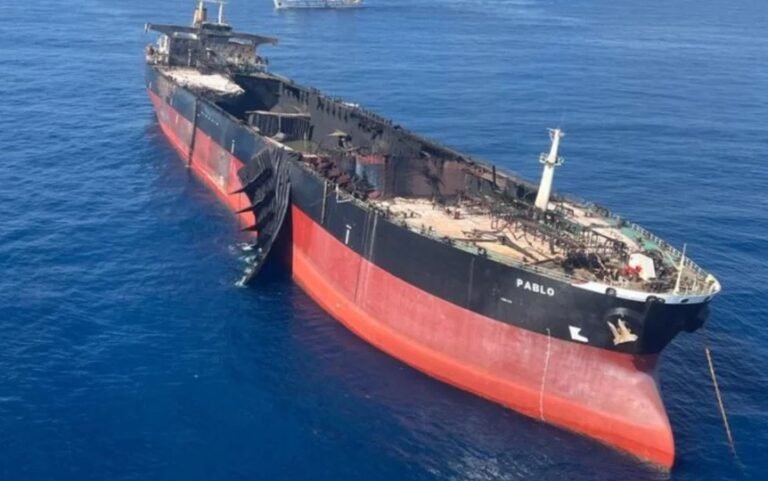The EU and UK Sanction UAE-Based Company Over Russian Shadow Tanker Network
The European Union and the United Kingdom have jointly sanctioned Intershipping Services, a UAE-based company responsible for operating the flag registries of Gabon and Comoros. These registries have been identified as key players in facilitating the opaque tanker network used to transport sanctioned Russian crude oil.
This move, announced as part of a broader sanctions package on Friday, represents a significant step by Western governments in targeting the infrastructure that supports Russia’s shadow fleet.
According to EU reports, Intershipping Services is headquartered in a Dubai suburb and has a family-connected office in Mumbai overseeing the Comoros flag registry.
Following Russia’s invasion of Ukraine in 2022, the Gabon flag registry saw a significant increase in activity, absorbing numerous tankers previously flagged by more cautious registries. This included a substantial portion of Sovcomflot’s fleet, a Russian state-controlled tanker company under sanctions. By 2024, Gabon had become the fastest-growing shipping registry globally, largely due to the influx of Russian vessels.
Both Gabon and Comoros have long been under scrutiny from port state control authorities. Comoros, in particular, is known for its high-risk maritime activities and has been blacklisted by organizations like the Paris MOU. It has also been flagged by the US Coast Guard and has a history of crew abandonment cases, according to the International Transport Workers’ Federation (ITF).
Comoros has been linked to Iran-related oil shipments, and both Gabon and Comoros have been implicated in sanctions evasion schemes involving illicit trade with countries like Venezuela, Russia, and Iran. The infamous tanker Pablo was flagged to Gabon when it exploded off the coast of Malaysia in 2023.
These sanctions were announced on the same day that the UK aligned with the EU’s decision to reduce the price cap for Russian crude oil from $60 to $47.60 per barrel, aiming to further squeeze Moscow’s revenues. However, the impact of this price cap reduction may be limited without US enforcement, as most maritime oil transactions are still conducted in US dollars.
There is a growing transatlantic divide in sanctions enforcement, with the US yet to endorse the EU’s floating cap mechanism. Without US financial backing, many experts doubt the effectiveness of this measure in curbing the profits of the shadow fleet.

